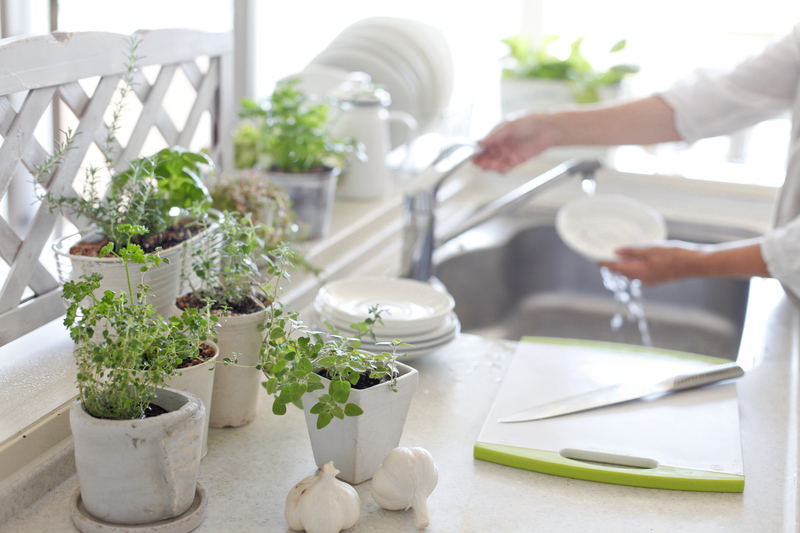Health Benefits of Gardening
Posted on 16/05/2025
Gardening is often seen as a relaxing and rewarding pastime, but its benefits extend far beyond simply beautifying your yard. Engaging in regular gardening activities can significantly enhance both your physical and mental well-being. This article explores the numerous health benefits associated with gardening, supported by scientific research and expert opinions.
Physical Health Benefits
Improved Cardiovascular Health
Engaging in gardening activities such as digging, planting, weeding, and watering can provide moderate-intensity cardiovascular exercise. According to the American Heart Association, gardening for at least 30 minutes several days a week can help reduce the risk of heart disease, high blood pressure, and stroke. The physical efforts involved in gardening increase heart rate, improve circulation, and strengthen the heart muscles.
Enhanced Flexibility and Strength
Gardening requires a variety of movements, including bending, stretching, lifting, and squatting. These activities help to improve overall flexibility and muscle strength. Regular gardening can also increase hand strength and dexterity, which is particularly beneficial for older adults. The repetitive motions and resistance activities can serve as a low-impact way to maintain muscle tone and joint health.
Weight Management
Gardening can be an effective way to burn calories and manage weight. Depending on the intensity of the activity, gardening can burn between 200 to 400 calories per hour. Activities such as mowing the lawn, raking leaves, and shoveling snow can provide a full-body workout that helps to maintain a healthy weight and reduce the risk of obesity.

Mental Health Benefits
Stress Reduction
Multiple studies have shown that spending time in green spaces and engaging in gardening can significantly lower stress levels. The act of planting and nurturing plants has been linked to the reduction of cortisol, the stress hormone. The rhythmic nature of gardening tasks, combined with the calming effects of nature, can help to mitigate feelings of anxiety and promote relaxation.
Enhanced Mood and Mental Well-being
Gardening has been shown to improve mood and increase feelings of happiness and satisfaction. The sense of accomplishment that comes from nurturing plants and witnessing their growth can contribute to a heightened sense of purpose and fulfillment. Additionally, exposure to sunlight while gardening helps to boost serotonin levels, which can improve mood and combat depression.
Cognitive Benefits
Engaging in gardening activities may also enhance cognitive function. The problem-solving and planning aspects of gardening can stimulate the brain and improve cognitive abilities, including memory and concentration. Research suggests that gardening can be particularly beneficial for older adults in maintaining cognitive health and delaying the onset of dementia and Alzheimer's disease.
Social Benefits
Community Engagement
Gardening can foster social connections and build a sense of community. Community gardens, for example, provide opportunities for people to collaborate, share resources, and work towards common goals. These social interactions can help to combat loneliness and promote a sense of belonging and mutual support.
Family Bonding
Gardening can be a family-friendly activity that promotes bonding and cooperation among family members. Working together on gardening projects can strengthen relationships, teach children about responsibility and the importance of nature, and create lasting memories.
Environmental Benefits
Promotion of Sustainable Practices
Gardening encourages sustainable living by promoting practices such as composting, water conservation, and organic farming. These environmentally friendly activities contribute to the reduction of waste, conservation of resources, and the promotion of biodiversity. By growing their own food, gardeners can reduce their carbon footprint and support a more sustainable food system.
Improvement of Air Quality
Plants play a crucial role in improving air quality by absorbing carbon dioxide and releasing oxygen. Additionally, they can filter harmful pollutants from the air, contributing to a healthier environment. Gardening, especially in urban areas, can help mitigate the effects of air pollution and create healthier living conditions.
Nutritional Benefits
Access to Fresh Produce
Growing your own fruits and vegetables provides access to fresh, nutritious produce that is free from harmful pesticides and chemicals. Homegrown produce is often more flavorful and nutrient-dense than store-bought options. Gardening can encourage healthier eating habits and increase the consumption of fruits and vegetables, which are essential for overall health and well-being.

Tips for Starting a Garden
If you're interested in reaping the health benefits of gardening, here are some tips to help you get started:
Choose the Right Location
Select a location with adequate sunlight, good soil drainage, and easy access to water. Most vegetables and flowers require at least 6-8 hours of sunlight per day.
Start Small
Begin with a small garden that is manageable and can be expanded over time. This approach allows you to gain experience and avoid becoming overwhelmed.
Select Appropriate Plants
Choose plants that are suitable for your climate and soil conditions. Consider starting with easy-to-grow varieties such as tomatoes, peppers, herbs, and marigolds.
Invest in Quality Tools
Having the right tools can make gardening tasks easier and more enjoyable. Invest in quality tools such as gloves, pruners, trowels, and a watering can or hose.
Learn and Experiment
Take the time to learn about gardening techniques and best practices. Don't be afraid to experiment and learn from your successes and mistakes.
Conclusion
Gardening offers a multitude of health benefits that encompass physical, mental, social, and environmental well-being. From improving cardiovascular health and muscle strength to reducing stress and enhancing cognitive function, gardening is a holistic activity that promotes a healthier and happier lifestyle. Additionally, gardening fosters community engagement, supports sustainable practices, and provides access to fresh, nutritious produce. Whether you're tending a small balcony garden or cultivating a large vegetable patch, gardening is a rewarding activity that can enrich your life and the environment. So, grab your trowel and start digging into the many benefits of gardening today!
Latest Posts
Essential Tools for Passionate Gardeners
Top 9 Gardening Tips for Newbies
Top Edible Wild UK Plants and Flowers



